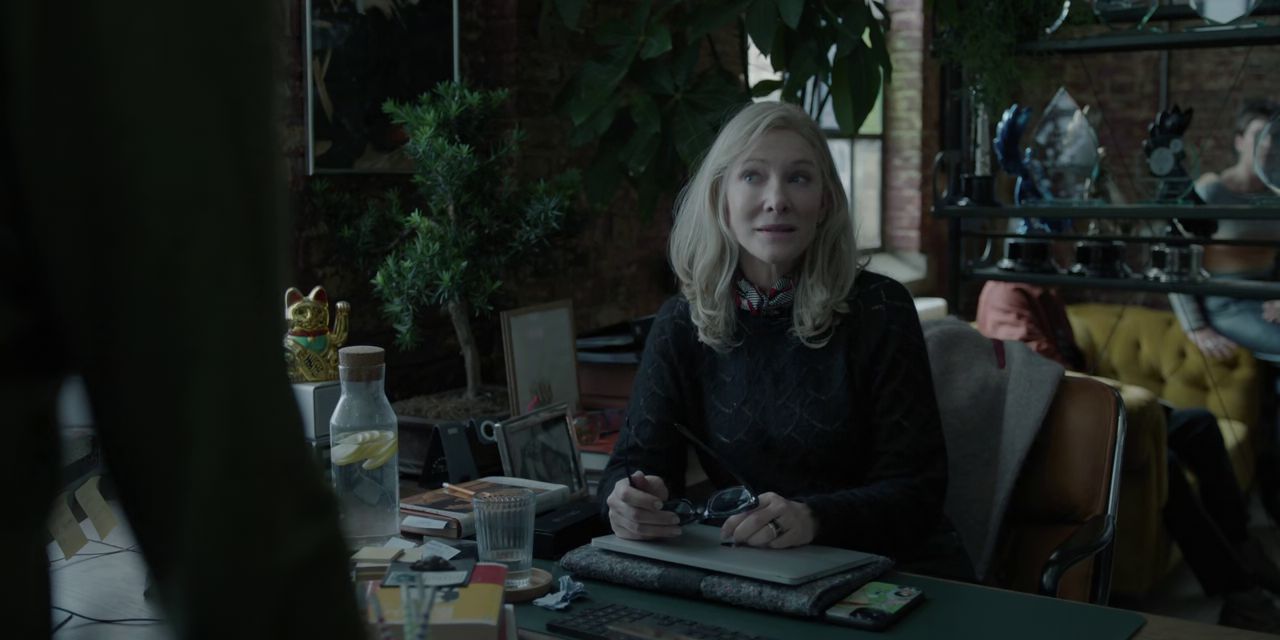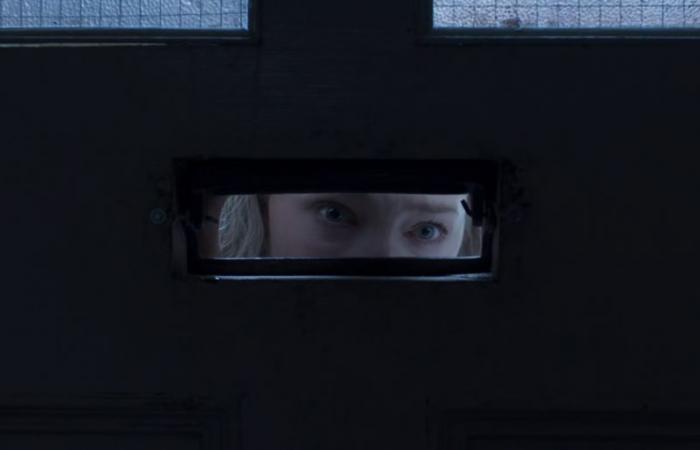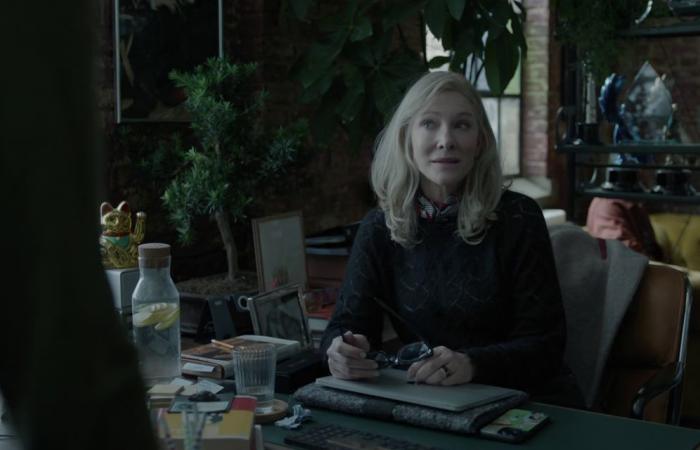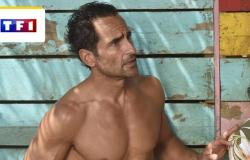In episode 5 of the series Disclaimerthe story continues its exploration of the fall of Catherine Ravenscroft, but the approach subtly changes, making the plot even more disturbing and complex. Catherine is still weakened, but this time, she finds herself in a much more intimate setting, that of her childhood. Unlike previous episodes where the narration juggled between different points of view and flashbacks linked to the fictional novel The Perfect Strangerthis fifth episode breaks with this structure. The absence of this fictional past transforms the viewer’s experience, refocusing attention on the anguish that Stephen Brigstowe inflicts on Catherine, without narrative filter or imaginary justification. The series thus becomes crueler and more revealing. For Catherine, this forced return to the modest bungalow of her childhood, far from her house and her husband Robert, underlines the decline she is experiencing.
The simplicity of this house contrasts with the complexity of its dilemmas. His return to the room of his mother, now an old lady suffering from dementia, is deeply symbolic. Catherine finds there a reassuring, but silent, maternal presence, a sort of comfort in the ordeal. Her mother, although unable to fully understand her, nevertheless offers her emotional support that no other character seems willing to give her. Meanwhile, Stephen, the series’ mysterious and ambiguous antagonist, increasingly reveals himself as a tormented, even psychologically disturbed, man. In previous episodes, his actions still seemed tinged with a certain pathos, even black humor. But in the absence of the fictional novel The Perfect Stranger to justify his actions, Stephen now appears disproportionately cruel, a man whose actions go beyond simple revenge.
This intensity in the character highlights his true nature and suggests an element of sadism. He no longer acts only to expose a supposed truth, but to meticulously, slowly destroy the people around Catherine. His need for control and revenge becomes almost an unhealthy obsession, devoid of any morality or compassion. This episode also introduces a reflection on complicated family relationships between parents and children. While Catherine finds the implicit support of her mother, Robert, for his part, chooses to bring their son Nicholas home, naively believing that this temporary proximity can heal their family wounds. But Nicholas, like Catherine, is a deeply broken character, uncomfortable in his role as a son and consumed by his own demons. Nicholas’s addiction, which pushes him to wander into sordid places and fall into drug addiction, illustrates this struggle against the existential emptiness he feels.
Basically, he is the mirror of the isolation that Catherine feels, everyone desperately trying to find an escape. Stephen’s cynicism extends to manipulating Nicholas through a false identity on social media. By creating an Instagram profile for Jonathan, his deceased son, Stephen reaches a level of abject manipulation. By pretending to be a lively young man, Stephen attracts Nicholas’ attention, playing on his emotional weakness and his desperate search for comfort, even artificial ones. This deliberate and cruel exploitation of the vulnerability of a young man in distress shows the lengths Stephen is willing to go to reach Catherine. He is no longer content with making her suffer; he now uses Nicholas as a pawn in his evil game, subtly pushing him towards accelerated self-destruction.
It is an orchestrated, calculated decline, where each action seems designed to maximize Catherine’s suffering. Another striking element of this episode is the slow destruction of Catherine’s professional life. We discover a Catherine respected in her community, a talented documentary filmmaker, but who will be weakened by Stephen’s intrusion. His colleague Jisoo, who served as his support and research partner, falls under Stephen’s influence. The alliance of Jisoo and Simon, another envious colleague, reveals how easily doubt can creep into the minds of people, even people they trust. This reaction is particularly ironic when we think of Catherine’s reputation, built on years of work and credibility. The betrayal of Jisoo and Simon, who almost blindly adhere to Stephen’s allegations, demonstrates how a well-orchestrated rumor can demolish a reputation, even without solid proof.
This shift at work also reflects the current malaise in professional circles, where image and public opinion sometimes weigh more heavily than skills and achievements. The final blow comes when Catherine attempts to confront Stephen, a final attempt to save what remains of her life and her bond with Nicholas. But Stephen refuses to face him. He lets her shout her frustrations through the mailbox, further reducing her dignity. This scene shows a victorious Stephen, a man whose madness is fueled by his thirst for control and his ability to inflict pain from a distance. Catherine’s fight no longer makes sense; Stephen has already taken the upper hand psychologically. By attacking his son, using compromising photos to break up their relationship, Stephen proves that he is ready to do anything to see Catherine destroyed.

The last scene, where Nicholas returns to his dealer, is both tragic and powerful. The young man, caught in Stephen’s web of manipulation and the weight of his own failings, chooses the path of destruction. This open ending leaves doubt about his future, symbolizing Stephen’s total control over his family. The series, through this, highlights the psychological consequences of family secrets, betrayals and manipulation, exposing the fragile aspect of the human psyche in the face of destructive forces. Episode 5 of Disclaimer is therefore a turning point in the series. He abandons any illusion of moral ambiguity, placing each character face to face with their reality and their choices. Catherine, Nicholas and even Robert find themselves cornered, trapped by a man whose desire for revenge has surpassed all rationality.
Note : 10/10. In short, a little masterpiece. Disclaimer uses this episode to remind us that sometimes, past trauma and grudges can breed monsters, capable of ruining entire lives, simply because they never learned to move on. The episode highlights the question: to what extent can the desire for revenge dehumanize an individual? For Stephen, the answer seems to be that there are no limits, until his thirst for domination is quenched.
Available on Apple TV+








